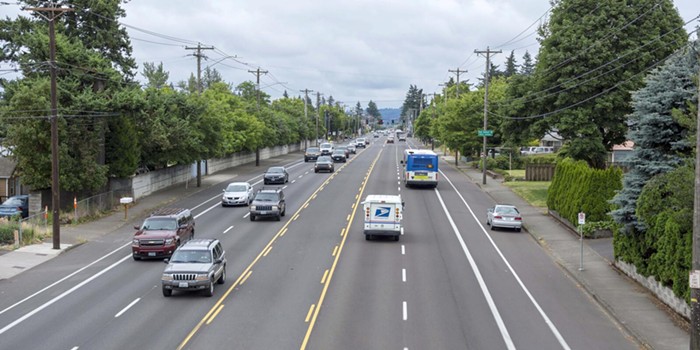IT'S EITHER the best or worst time to take over the Portland Housing Bureau.
Portlanders are becoming more concerned over rising housing costs by the day, while the bureau continues to take fire for falling short of its goals for affordable units. There's ongoing squabbling on city council over whether affordable units should be aimed at the city's poorest residents, or at working-class folks at risk of being priced out. And a bid to give the city power to compel more cheap condos and homes just died in the Oregon Legislature.
Stepping into this maelstrom is Kurt Creager, who was tapped earlier this month to take the reins of the housing bureau after the departure former Director Traci Manning.
Creager knows Portland. He spent 16 years developing affordable housing in Vancouver, forming allegiances that spanned the Columbia. And he partnered with some of the city's biggest developers during a stint with local design firm Otak, which had a hand in developing the South Waterfront.
Most recently, he's been working to create cheap housing in Fairfax County, Virginia—formative stomping grounds of Mayor Charlie Hales—though Creager is ditching the position after less than a year to return to the Northwest.
He starts August 10. We wondered what Portland should expect.
MERCURY: Portland's got a reputation as the last affordable big city on the West Coast. Now that's slipping away. What's your take on the housing dynamic here?
KURT CREAGER: Portland is relatively affordable compared to its neighbors Seattle or San Francisco. Anyone coming from either of those two jurisdictions would be delighted with the range of options. But for Portlanders native to the area, it's quite sobering. In relative terms, it's still affordable. However, if you look at the median incomes of Portland residents, it's quite expensive. Income growth hasn't been that strong.
What do you see as our biggest challenge?
It's going to be the increased production of affordable housing. [City Commissioner] Dan Saltzman has made it clear that status quo is not an acceptable option. He'd like to see a wider spectrum of tools. The effort to recalibrate the zoning code to be more effective is very helpful ["The Soft Sell," News, June 24], but it won't be a panacea. Policy's great, but unless you can produce, the policy is just an abstraction.
One big knock on the Portland Housing Bureau is that it's failed to meet its housing goals. How will you ensure that doesn't happen?
We in the public sector have to under-promise and over-deliver. And as a general practice, local government needs to be held to account for its commitments. That means that you need to be transparent and monitor progress, even if it is shorter than you might have hoped, so you can take corrective action.
There are differing ideas for how housing money should best be spent. Some officials want to focus on the lowest incomes. Commissioner Saltzman has said he wants to also provide "workforce" housing.
The interest in serving a full spectrum of needs is quite important. Dan Saltzman has made it clear he wants to serve workforce needs and not just those with extremely low income. That would obviously have to be balanced with not turning our backs on the needs of the homeless or people with special needs, but serving a broader spectrum—so it's a value-added kind of effort.
There was a recent failed attempt to kill Oregon's preemption on inclusionary zoning, which allows governments to mandate affordable units in new developments. That disappointed a lot of people. Does it make your job a lot harder?
I'm interested in the job partly because I think you're on the threshold of doing something significant, and I'd like to help you go there. [Inclusionary zoning] hasn't been a partisan issue here in Virginia. Developers understand the business proposition. They're willing to go there. I think it will likely happen [in Oregon]. There seems to be quite a lot of interest in it. I think it will be resurrected.
You've been in Virginia less than a year, and now you're leaving. What would you say to people concerned you might give Portland the same treatment?
I'm making a long-term commitment to Portland. It's a place I have treasured over the years and I think I can make a positive difference in the community. I have no interest in using this as a stepping-stone to anything else.



















